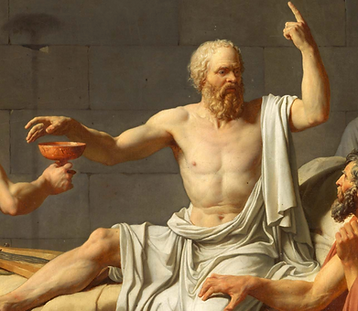Class 1: Why Do We Ask Questions?
Socrates, one of the earliest and most curious minds in history, believed that asking good questions was the key to understanding the world. In this class, students will learn how he challenged people not by giving answers, but by helping them think more deeply. They’ll explore big and small questions (some with answers, some without!) and begin their own journey of inquiry to capture the questions that matter most to them.

Class 3: What If? The Power of Hypothesis
Nikola Tesla once imagined a world powered by invisible energy and wireless communication: ideas that sounded impossible at the time but shaped the future! In this class, students will channel Tesla’s spirit of wonder as they explore crazy-sounding questions and radical inventions. Through imaginative prompts, predictive challenges, and "what if" experiments, they’ll learn how bold thinking can lead to real breakthroughs.

Class 5: Wonders of Nature
Marie Sibylla Merian spent her life uncovering the hidden lives of insects and plants, using careful observation and illustration to reveal nature’s secrets. In this class, students will model her methods of brilliance by tracking questions outdoors, conducting mini-experiments, and using nature journaling to explore the marvels of the living world. Through this hands-on inquiry, they’ll learn that wonder begins with looking closely.

Class 7: Curiosity and Courage
The Wright Brothers dared to ask, “What if humans could fly?” Their curiosity led to the first powered flight. In this class, students will explore how they took bold leaps into the unknown. Through group challenges and storytelling, they’ll reflect on how asking big questions can lead to extraordinary breakthroughs.

Class 2: The Art of Noticing
Sir David Attenborough has spent a lifetime revealing the wonders of the world simply by paying close attention. In this class, students will follow his example by slowing down to notice what others miss, be it the textures, sounds, patterns, and small changes in nature and daily life. Through sketching, storytelling, and sensory exploration, they’ll discover that careful observation is the first step toward insight.

Class 4: Puzzles, Logic, and Open-Ended Games
Alan Turing once asked whether machines could think: In doing so, helped launch the field of computer science. In this session, students will follow in his footsteps by exploring puzzles and paradoxes that challenge logic and reveal the beauty of complex questions. They’ll tackle brainteasers that teach them how to think flexibly, reason through uncertainty, and embrace the unknown.

Class 6: Listening with Curiosity
Pulitzer Prize-winning journalist Studs Terkel spent his life listening—really listening—to people from all walks of life: he recorded their stories with empathy and insight. In this session, students will study and use his techniques to ask questions with genuine interest. They will learn how active listening helps us understand others and connect across differences. They'll practice interviewing and use storytelling to build empathy and deepen their appreciation for the people around them.

Class 8: The Art of Mystery-Solving
Dr. Joseph Bell, the real-life inspiration for Sherlock Holmes, was a master of noticing what others overlooked. He extraordinarily complicated mysteries with his sharp observation and logical thinking. In this class, students will step into the detective’s shoes, using curiosity as their guide to untangle puzzles, decode clues, and ask clever questions to solve given mysteries.

